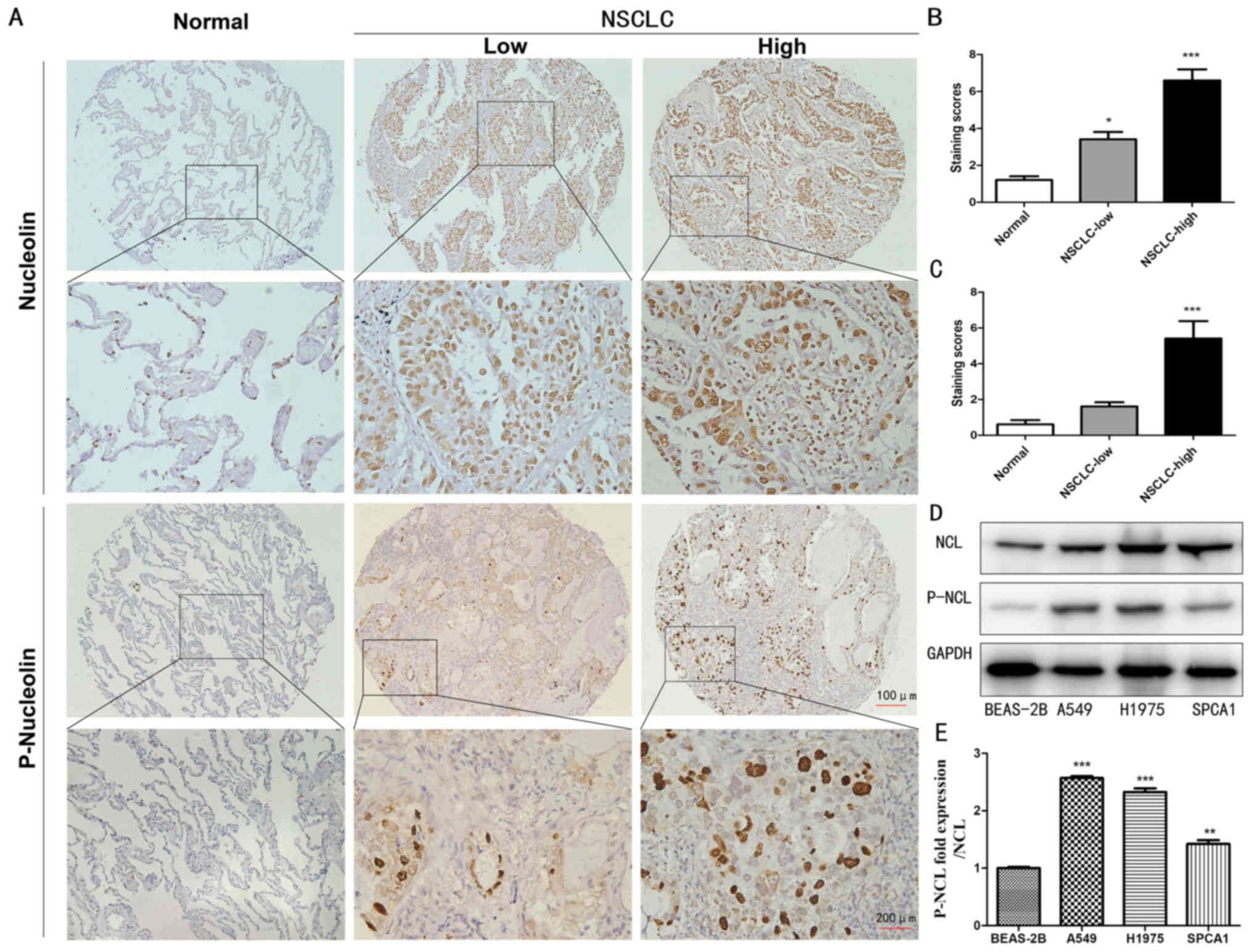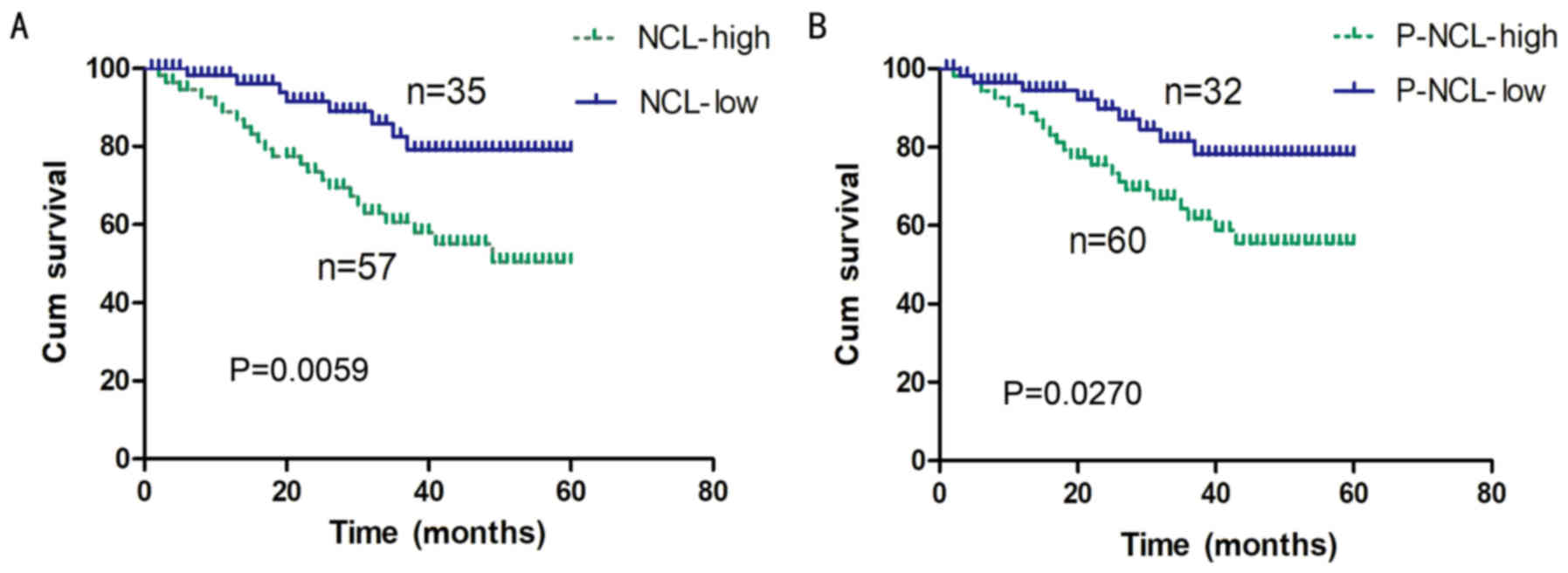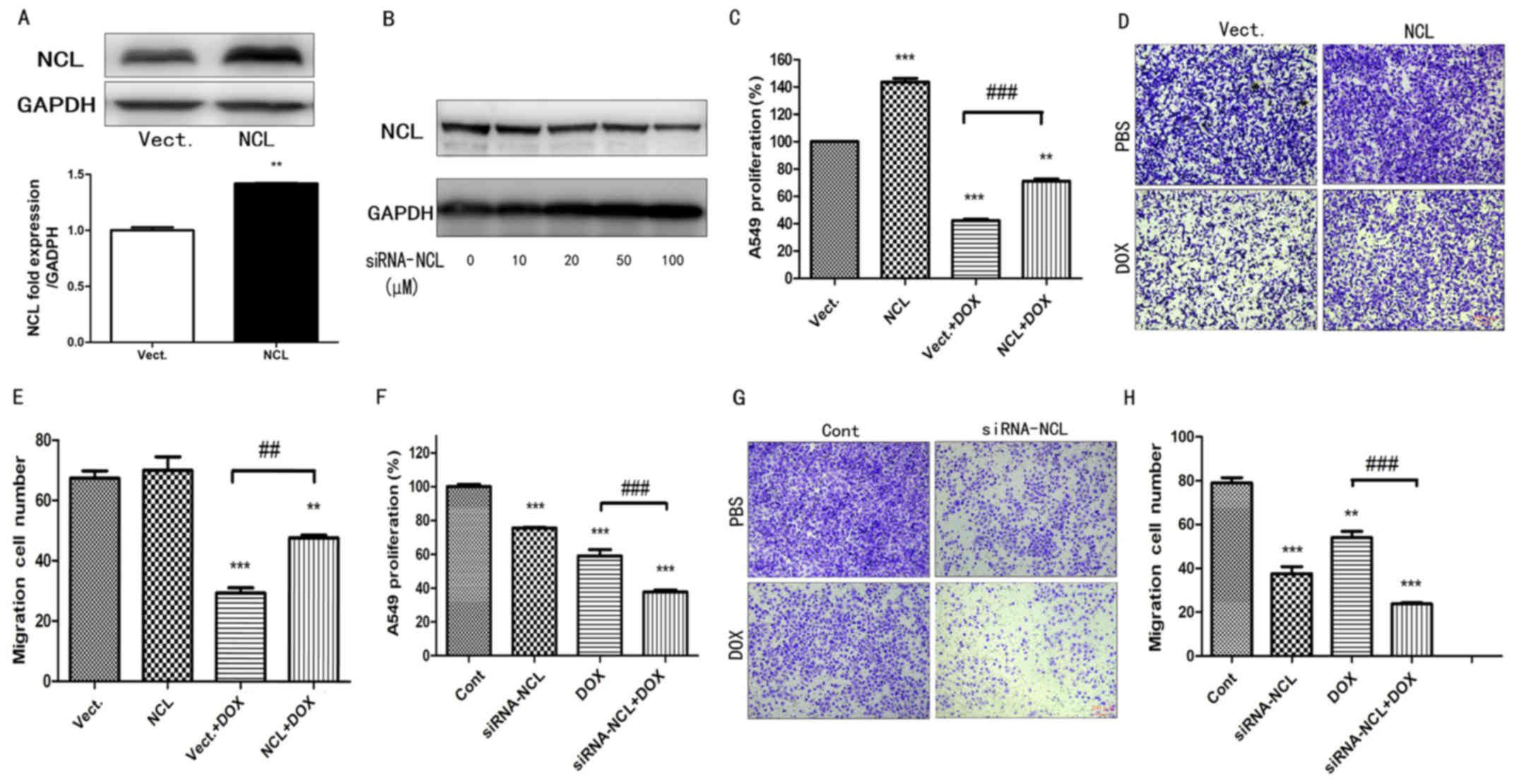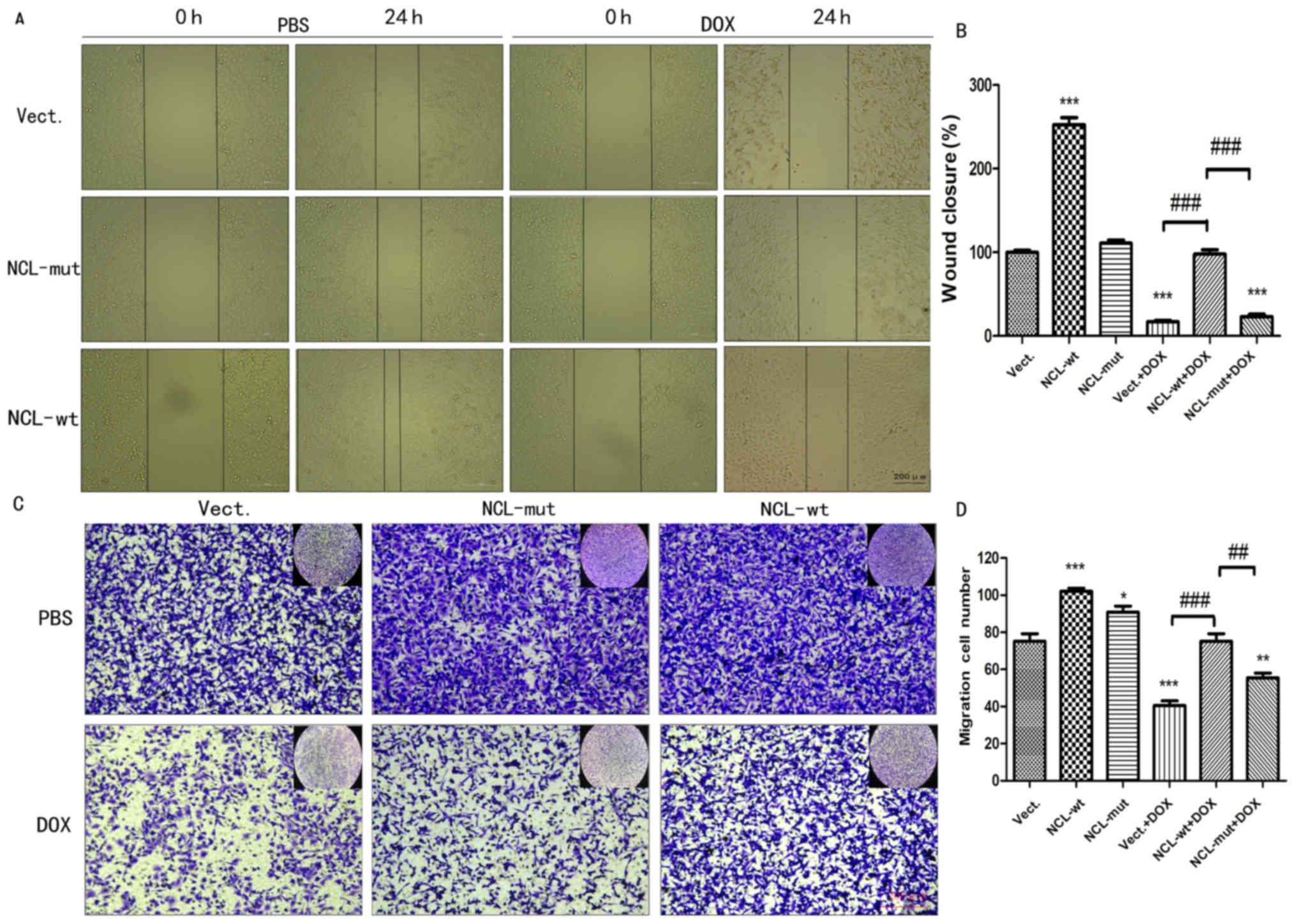|
1
|
Chen W, Zheng R, Baade PD, Zhang S, Zeng
H, Bray F, Jemal A, Yu XQ and He J: Cancer statistics in China,
2015. CA Cancer J Clin. 66:115–132. 2016. View Article : Google Scholar : PubMed/NCBI
|
|
2
|
Smith R: Lapses at the new England journal
of medicine. J R Soc Med. 99:380–382. 2006. View Article : Google Scholar : PubMed/NCBI
|
|
3
|
Park SM, Choi EY, Bae DH, Sohn HA, Kim SY
and Kim YJ: The lncRNA EPEL promotes lung cancer cell proliferation
through E2F target activation. Cell Physiol Biochem. 45:1270–1283.
2018. View Article : Google Scholar : PubMed/NCBI
|
|
4
|
Hiddinga BI, Pauwels P, Janssens A and van
Meerbeeck JP: O6-Methylguanine-DNA methyltransferase (MGMT). A
drugable target in lung cancer? Lung Cancer. 107:91–99.
2017.PubMed/NCBI
|
|
5
|
Xu JY, Lu S, Xu XY, Hu SL, Li B, Li WX and
Chang JY: Prognostic significance of nuclear or cytoplasmic
nucleolin expression in human non-small cell lung cancer and its
relationship with DNA-PKcs. Tumour Biol. 37:10349–10356. 2016.
View Article : Google Scholar : PubMed/NCBI
|
|
6
|
Zhang H, Ingham ES, Gagnon MK, Mahakian
LM, Liu J, Foiret JL, Willmann JK and Ferrara KW: In vitro
characterization and in vivo ultrasound molecular imaging of
nucleolin-targeted microbubbles. Biomaterials. 118:63–73. 2017.
View Article : Google Scholar : PubMed/NCBI
|
|
7
|
Marcel V, Catez F, Berger CM, Perrial E,
Plesa A, Thomas X, Mattei E, Hayette S, Saintigny P, Bouvet P, et
al: Expression profiling of ribosome biogenesis factors reveals
nucleolin as a novel potential marker to predict outcome in AML
patients. PLoS One. 12:e01701602017. View Article : Google Scholar : PubMed/NCBI
|
|
8
|
Berger CM, Gaume X and Bouvet P: The roles
of nucleolin subcellular localization in cancer. Biochimie.
113:78–85. 2015. View Article : Google Scholar : PubMed/NCBI
|
|
9
|
Ugrinova I, Monier K, Ivaldi C, Thiry M,
Storck S, Mongelard F and Bouvet P: Inactivation of nucleolin leads
to nucleolar disruption, cell cycle arrest and defects in
centrosome duplication. BMC Mol Biol. 8:662007. View Article : Google Scholar : PubMed/NCBI
|
|
10
|
Benedetti E, Antonosante A, d'Angelo M,
Cristiano L, Galzio R, Destouches D, Florio TM, Dhez AC, Astarita
C, Cinque B, et al: Nucleolin antagonist triggers autophagic cell
death in human glioblastoma primary cells and decreased in vivo
tumor growth in orthotopic brain tumor model. Oncotarget.
6:42091–42104. 2015. View Article : Google Scholar : PubMed/NCBI
|
|
11
|
Gilles ME, Maione F, Cossutta M,
Carpentier G, Caruana L, Di Maria S, Houppe C, Destouches D,
Shchors K, Prochasson C, et al: Nucleolin targeting impairs the
progression of pancreatic cancer and promotes the normalization of
tumor vasculature. Cancer Res. 76:7181–7193. 2016. View Article : Google Scholar : PubMed/NCBI
|
|
12
|
Wang Y, Chen J, Liang X, Han H, Wang H,
Yang Y and Li Q: An ATP-Responsive Codelivery system of doxorubicin
and miR-34a to synergistically inhibit cell proliferation and
migration. Mol Pharm. 14:2323–2332. 2017. View Article : Google Scholar : PubMed/NCBI
|
|
13
|
Mustafa EH, Mahmoud HT, Al-Hudhud MY,
Abdalla MY, Ahmad IM, Yasin SR, Elkarmi AZ and Tahtamouni LH:
2-Deoxy-D-glucose synergizes with doxorubicin or L-buthionine
sulfoximine to reduce adhesion and migration of breast cancer
cells. Asian Pac J Cancer Prev. 16:3213–3222. 2015. View Article : Google Scholar : PubMed/NCBI
|
|
14
|
Tacar O, Sriamornsak P and Dass CR:
Doxorubicin: An update on anticancer molecular action, toxicity and
novel drug delivery systems. J Pharm Pharmacol. 65:157–170. 2013.
View Article : Google Scholar : PubMed/NCBI
|
|
15
|
Yao Y, Shen H, Zhou Y, Yang Z and Hu T:
MicroRNA-215 suppresses the proliferation, migration and invasion
of non-small cell lung carcinoma cells through the downregulation
of matrix metalloproteinase-16 expression. Exp Ther Med.
15:3239–3246. 2018.PubMed/NCBI
|
|
16
|
Xiao S, Caglar E, Maldonado P, Das D,
Nadeem Z, Chi A, Trinité B, Li X and Saxena A: Induced expression
of nucleolin phosphorylation-deficient mutant confers
dominant-negative effect on cell proliferation. PLoS One.
9:e1098582014. View Article : Google Scholar : PubMed/NCBI
|
|
17
|
Johansson H, Svensson F, Runnberg R,
Simonsson T and Simonsson S: Phosphorylated nucleolin interacts
with translationally controlled tumor protein during mitosis and
with Oct4 during interphase in ES cells. PLoS One. 5:e136782010.
View Article : Google Scholar : PubMed/NCBI
|
|
18
|
Wu DM, Zhang P, Liu RY, Sang YX, Zhou C,
Xu GC, Yang JL, Tong AP and Wang CT: Phosphorylation and changes in
the distribution of nucleolin promote tumor metastasis via the
PI3K/Akt pathway in colorectal carcinoma. FEBS Lett. 588:1921–1929.
2014. View Article : Google Scholar : PubMed/NCBI
|
|
19
|
Fan SQ, Ma J, Zhou J, Xiong W, Xiao BY,
Zhang WL, Tan C, Li XL, Shen SR, Zhou M, et al: Differential
expression of Epstein-Barr virus-encoded RNA and several
tumor-related genes in various types of nasopharyngeal epithelial
lesions and nasopharyngeal carcinoma using tissue microarray
analysis. Hum Pathol. 37:593–605. 2006. View Article : Google Scholar : PubMed/NCBI
|
|
20
|
Wang W, Wen Q, Luo J, Chu S, Chen L, Xu L,
Zang H, Alnemah MM, Li J, Zhou J, et al: Suppression of β-catenin
nuclear translocation by CGP57380 decelerates poor progression and
potentiates radiation-induced apoptosis in nasopharyngeal
carcinoma. Theranostics. 7:2134–2149. 2017. View Article : Google Scholar : PubMed/NCBI
|
|
21
|
Tong Z, Jiang B, Wu Y, Liu Y, Li Y, Gao M,
Jiang Y, Lv Q and Xiao X: MiR-21 Protected cardiomyocytes against
doxorubicin-induced apoptosis by targeting BTG2. Int J Mol Sci.
16:14511–14525. 2015. View Article : Google Scholar : PubMed/NCBI
|
|
22
|
Qiu W, Wang G, Sun X, Ye J, Wei F, Shi X
and Lv G: The involvement of cell surface nucleolin in the
initiation of CCR6 signaling in human hepatocellular carcinoma. Med
Oncol. 32:752015. View Article : Google Scholar : PubMed/NCBI
|
|
23
|
Abdelmohsen K and Gorospe M: RNA-binding
protein nucleolin in disease. RNA Biol. 9:799–808. 2012. View Article : Google Scholar : PubMed/NCBI
|
|
24
|
Zhao H, Huang Y, Xue C, Chen Y, Hou X, Guo
Y, Zhao L, Hu Zh, Huang Y, Luo Y, et al: Prognostic significance of
the combined score of endothelial expression of nucleolin and CD31
in surgically resected non-small cell lung cancer. PLoS One.
8:e546742013. View Article : Google Scholar : PubMed/NCBI
|
|
25
|
Qi J, Li H, Liu N, Xing Y, Zhou G, Wu Y,
Liu Y, Chen W, Yue J, Han B, et al: The implications and mechanisms
of the extra-nuclear nucleolin in the esophageal squamous cell
carcinomas. Med Oncol. 32:452015. View Article : Google Scholar : PubMed/NCBI
|
|
26
|
Cheng Y, Zhao G, Zhang S, Nigim F, Zhou G,
Yu Z, Song Y, Chen Y and Li Y: AS1411-induced growth inhibition of
glioma cells by up-regulation of p53 and down-regulation of Bcl-2
and Akt1 via nucleolin. PLoS One. 11:e01670942016. View Article : Google Scholar : PubMed/NCBI
|
|
27
|
Dranovsky A, Vincent I, Gregori L,
Schwarzman A, Colflesh D, Enghild J, Strittmatter W, Davies P and
Goldgaber D: Cdc2 phosphorylation of nucleolin demarcates mitotic
stages and Alzheimer's disease pathology. Neurobiol Aging.
22:517–528. 2001. View Article : Google Scholar : PubMed/NCBI
|
|
28
|
Shang Y, Kakinuma S, Nishimura M,
Kobayashi Y, Nagata K and Shimada Y: Interleukin-9 receptor gene is
transcriptionally regulated by nucleolin in T-cell lymphoma cells.
Mol Carcinog. 51:619–627. 2012. View
Article : Google Scholar : PubMed/NCBI
|
|
29
|
Wolfson E, Goldenberg M, Solomon S,
Frishberg A and Pinkas-Kramarski R: Nucleolin-binding by ErbB2
enhances tumorigenicity of ErbB2-positive breast cancer.
Oncotarget. 7:65320–65334. 2016. View Article : Google Scholar : PubMed/NCBI
|
|
30
|
Fogal V, Sugahara KN, Ruoslahti E and
Christian S: Cell surface nucleolin antagonist causes endothelial
cell apoptosis and normalization of tumor vasculature.
Angiogenesis. 12:91–100. 2009. View Article : Google Scholar : PubMed/NCBI
|
|
31
|
Chen SC, Hu TH, Huang CC, Kung ML, Chu TH,
Yi LN, Huang ST, Chan HH, Chuang JH, Liu LF, et al:
Hepatoma-derived growth factor/nucleolin axis as a novel oncogenic
pathway in liver carcinogenesis. Oncotarget. 6:16253–16270.
2015.PubMed/NCBI
|
|
32
|
Pichiorri F, Palmieri D, De Luca L,
Consiglio J, You J, Rocci A, Talabere T, Piovan C, Lagana A,
Cascione L, et al: In vivo NCL targeting affects breast cancer
aggressiveness through miRNA regulation. J Exp Med. 210:951–968.
2013. View Article : Google Scholar : PubMed/NCBI
|
|
33
|
Jiang B, Li Y, Liang P, Liu Y, Huang X,
Tong Z, Zhang P, Huang X, Liu Y and Liu Z: Nucleolin enhances the
proliferation and migration of heat-denatured human dermal
fibroblasts. Wound Repair Regen. 23:807–818. 2015. View Article : Google Scholar : PubMed/NCBI
|
|
34
|
Schwab MS and Dreyer C: Protein
phosphorylation sites regulate the function of the bipartite NLS of
nucleolin. Eur J Cell Biol. 73:287–297. 1997.PubMed/NCBI
|
|
35
|
Borsig L, Wolf MJ, Roblek M, Lorentzen A
and Heikenwalder M: Inflammatory chemokines and metastasis -
tracing the accessory. Oncogene. 33:3217–3224. 2014. View Article : Google Scholar : PubMed/NCBI
|
|
36
|
Lin SS, Li FF, Sun L, Fan W, Gu M, Zhang
LY, Qin S and Yuan ST: Marsdenia tenacissima extract suppresses
A549 cell migration through regulation of CCR5-CCL5 axis, Rho C,
and phosphorylated FAK. Chin J Nat Med. 14:203–209. 2016.PubMed/NCBI
|
|
37
|
Choi WT, Yang Y, Xu Y and An J: Targeting
chemokine receptor CXCR4 for treatment of HIV-1 infection, tumor
progression, and metastasis. Curr Top Med Chem. 14:1574–1589. 2014.
View Article : Google Scholar : PubMed/NCBI
|
|
38
|
Niu H, Yang X, Xu Z, Du T and Wang R: Cell
surface nucleolin interacts with CXCR4 receptor via the 212
c-terminal portion. Tumour Biol. 36:1099–1104. 2015. View Article : Google Scholar : PubMed/NCBI
|



















